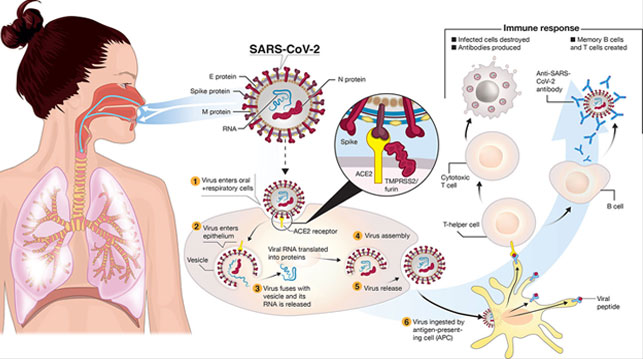
Before this year, most people had never heard of the word “coronavirus.” Today, we associate this word with the current pandemic, but in fact a coronavirus is just one of many diseases belonging to a family of illnesses including the common cold and the more serious SARS (severe acute respiratory syndrome) that was in the news a few years ago.
With diseases a frequent topic in the media, perhaps you’ve noticed this: People struggle to properly write disease names: Is it Coronavirus or coronavirus? Covid or COVID?? These sorts of errors are common not only with the disease of the day, but also with diseases that have been causing significant, severe illness for years: Is it Diabetes Mellitus or diabetes mellitus; Alzheimer’s disease, alzheimer’s disease, or Alzheimer’s Disease… you get the idea.
Get a free sample proofread and edit for your English document.
Two professional proofreaders will proofread and edit your English document.
If you’ve ever been confused about how to capitalize disease names, read on. In today’s post, I’ll provide you with three simple, hopefully easy-to-remember, rules on the proper capitalization of disease names.
1. Capitalize proper names in eponymous diseases.
Eponymous is more than just an REM album from the 1980s. An eponym is person, place, or thing after which something else is named. Eponymous diseases are ones named after a person or place, and just as you would capitalize a person or place’s name, you must capitalize the person or place name that is part of a disease name. Here are some examples:
A good rule of thumb here is if it sounds like it might be the name of a place or person, capitalize it. When in doubt, check it out in a reliable dictionary. One other note worth pointing out is that it is becoming less common to use the possessive with diseases and conditions named after people. Rather, the trend is toward the non-possessive forms, so Alzheimer disease and Down syndrome are both correct, though in the case of the former, the possessive is still more frequently used.

2. Use lowercase for everything else.
With the examples above, notice that the words disease and virus are lowercase. These and other common nouns that are part of the name of a disease, like syndrome or condition, should be lowercase. Also, the names of non-eponymous diseases, such as the aforementioned diabetes mellitus, as well as malaria, tuberculosis, eczema, and probably most common diseases you can think of, should be lowercase.
3. Capitalize all letters in an initialism.
Certain diseases are commonly referred to with initialisms, which are abbreviations made up of the initial letters of a longer name. Initialisms are made up of capital letters, even if the longer name is not capitalized. Here are a few examples:
It bears repeating that the written out name is not necessarily capitalized; don’t let the capital letters in the initialism fool you. The only capital letters in the written out names are at the beginnings of proper names.
One little extra tricky thing about viruses is that sometimes names are single words made of something plus the word virus, like coronavirus, Hantavirus, and rotavirus. Other times the word virus is separate: human immunodeficiency virus. This can be explained by the fact that diseases in the first category have common names that are the same as their genus, and a virus’s genus ends in -virus. Diseases in the second category are those with common names different from their genus. Alas, for some reason (perhaps just to be confusing?), Ebola virus is typically written as two words, although its genus is Ebolavirus.
Capitalization in English can be seemingly unpredictable, so if you’d like to review some more general rules about it, see this post on common capitalization errors.
Happy writing, and stay healthy!
Sarah P.
Get a free sample proofread and edit for your English document.
Two professional proofreaders will proofread and edit your English document.
Get a free sample proofread and edit for your document.
Two professional proofreaders will proofread and edit your document.
We will get your free sample back in three to six hours!